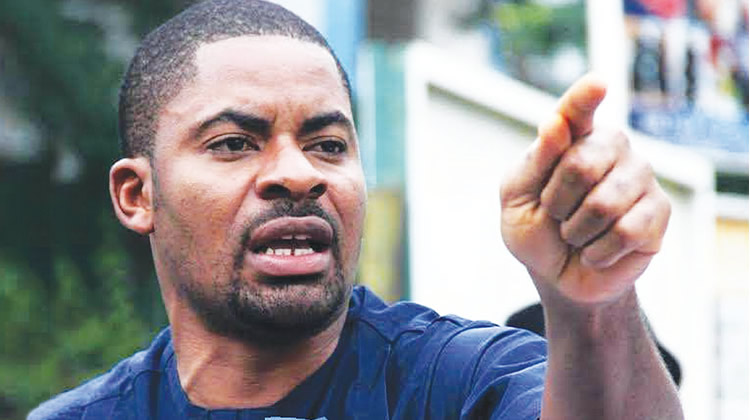In Nigeria’s turbulent political climate, few names spark as much controversy as Prince Deji Adeyanju — activist, social critic, and government watchdog. But behind his outspoken persona lies a long and unsettling legal battle: an old murder charge from 2005 that repeatedly resurfaced, even after the courts had cleared him.
This is the story of how a case that should have been laid to rest became a tool of intimidation, stretching across 14 years, multiple courts, and two acquittals.
The Beginning: A 2005 Allegation
On January 6, 2005, tragedy struck in Kano. A businessman named Alhassan Ali was killed, and police quickly rounded up suspects, among them a young Deji Adeyanju. He was charged with culpable homicide under the Penal Code — a capital offence that carries the weight of death by hanging if convicted.
The trial dragged on for four years, but by 2009, the Kano State High Court discharged and acquitted him, ruling there was no sufficient evidence linking him to the murder.
For most people, that would have been the end. For Adeyanju, it was only the beginning.
Resurrection of a Dead Case
Fast forward almost a decade later. By 2018, Adeyanju had become one of the most prominent critics of President Muhammadu Buhari’s administration. He led protests, penned scathing commentaries, and demanded accountability on corruption and governance.
Then, on December 13, 2018, police suddenly rearrested him — not for a new crime, but for the very same 2005 murder case.
He was first detained in Abuja for several days without formal charges before being whisked away to Kano. Critics immediately cried foul, calling the move a politically motivated witch-hunt aimed at silencing dissent.
The Magistrate’s Court Drama
On December 21, 2018, Adeyanju was arraigned before a Chief Magistrate’s Court in Kano. But here’s the catch: under Nigerian law, a magistrate court has no jurisdiction to try murder cases.
The court promptly admitted it lacked authority and remanded Adeyanju in prison pending referral to a competent court. The next hearing date was pushed to February 2019.
For weeks, the activist languished in detention, sparking outrage. The Nigerian Senate even ordered an investigation into his re-arrest.
The Bail and the Wait
After 67 days in custody, Adeyanju was granted bail in February 2019. The conditions varied in reports — some said ₦50,000, others ₦500,000 plus sureties — but what mattered was that he was finally free.
Yet the shadow of the case still loomed large.
The Final Acquittal: Double Jeopardy
On November 1, 2019, Justice Rabiu Sadiq of the Kano State High Court delivered the final word: Adeyanju was discharged and acquitted again.
The judge noted that Adeyanju had already been cleared in 2009 and that bringing him to trial again amounted to double jeopardy — a constitutional violation under Section 36(9), which forbids trying a person twice for the same offence.
In essence, the state had no legal grounds to resurrect the case.
Politics or Justice?
So why was a long-dead case suddenly revived in 2018?
-
Civil society groups insist it was a political tool, meant to sideline a troublesome activist.
-
The government maintained it was merely “revisiting an old matter.”
-
The courts, however, saw it for what it was: an abuse of process.
For many Nigerians, the Adeyanju saga reflects a troubling pattern — where the legal system is sometimes weaponized against activists and dissenters.
What This Case Tells Us
-
Justice delayed is justice manipulated – A case dismissed in 2009 should not have reappeared in 2018.
-
Double jeopardy is not optional – Once acquitted, the state cannot simply retry you to achieve a different outcome.
-
Politics and the law are often intertwined in Nigeria – And activists often pay the price.
Final Word
Today, Deji Adeyanju remains a free man, but the ordeal illustrates the fragility of justice when it collides with power. His case is a reminder that activism in Nigeria is not just about speaking truth to power — it can also mean fighting for your very freedom.
Sources: Vanguard, Guardian Nigeria, Independent
